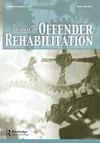青少年感化官与自由裁量决策:法律、生理和社会因素的影响
IF 1.1
Q3 SOCIAL WORK
引用次数: 0
摘要
摘要:虽然量刑建议应以法律因素为基础,但研究表明,一些未成年感化官也考虑了法外因素。事实上,研究表明,对某些人口统计数据(例如,年轻的黑人男性)的刻板印象增加了对危险的看法,进而导致更严厉的量刑建议。本研究的目的是确定JPO在提出量刑建议时认为最重要的法律因素(犯罪严重程度、前科和记录)、身体因素(种族、性别和年龄)和社会因素(社会经济地位、少年家庭/家庭安排的完整性、共犯的存在)。这项研究的数据来自九个州的青少年缓刑官员样本。参与者被问及有关制裁、处置和量刑的问题。调查结果表明,虽然大多数jpo在提出量刑建议时将法律因素(如犯罪严重程度)视为最重要的因素,但在提出量刑建议时,相当大比例的样本将物理因素(如种族)视为最重要的考虑因素。讨论了研究的意义和未来发展方向。关键词:决策未成年缓刑官量刑前调查披露声明作者未发现潜在利益冲突。本文章由计算机程序翻译,如有差异,请以英文原文为准。
Juvenile probation officers and discretionary decision-making: the effects of legal, physical, and social factors
AbstractAlthough sentencing recommendations should be based on legal factors, research shows that some juvenile probation officers (JPOs) also consider extra-legal factors. Indeed, research shows that stereotypes about certain demographics (e.g., young Black males) increase the perception of dangerousness and, in turn, result in harsher sentencing recommendations. The purpose of the current study was to identify the legal (seriousness of offense, prior offenses, and record), physical (race, gender, and age), and social factors (socioeconomic status, completeness of the juvenile’s family/family arrangement, presence of co-offenders) that the JPO considered the most important when making their sentencing recommendations. Data for the study came from a sample of juvenile probation officers in nine states. Participants were asked questions about sanctioning, disposition, and sentencing. The findings show that while the majority of JPOs rated legal factors (e.g., seriousness of offense) as the most important when making sentencing recommendations, a substantial proportion of the sample rated physical factors (e.g., race) as the most important factor considered when making sentencing recommendations. Implications and future directions for research are discussed.Keywords: decision-makingjuvenile probation officerpre-sentencing investigation Disclosure statementNo potential conflict of interest was reported by the author(s).
求助全文
通过发布文献求助,成功后即可免费获取论文全文。
去求助
来源期刊

Journal of Offender Rehabilitation
SOCIAL WORK-
CiteScore
1.60
自引率
0.00%
发文量
24
期刊介绍:
The Journal of Offender Rehabilitation is a multidisciplinary journal of innovation in research, services and programs in criminal justice and corrections. The journal is an essential professional resource for practitioners, educators and researchers who work with individuals involved in the criminal justice system and study the dynamics of rehabilitation and individual and system change. Original research using qualitative or quantitative methodology, theoretical discussions, evaluations of program outcomes, and state of the science reviews will be considered.
 求助内容:
求助内容: 应助结果提醒方式:
应助结果提醒方式:


